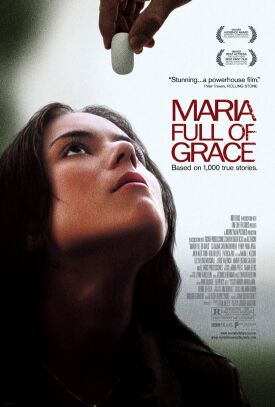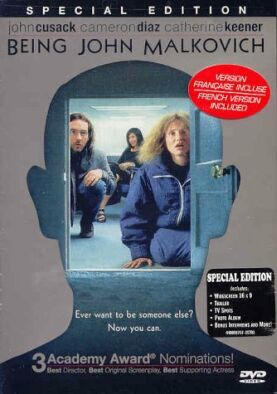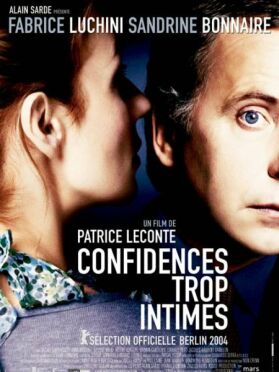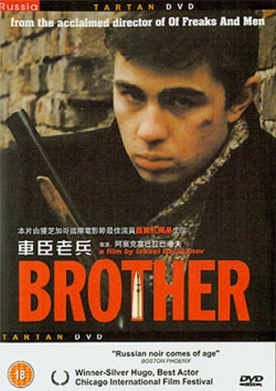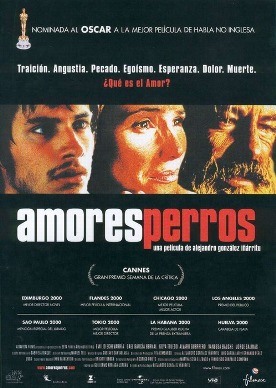Maria Full of Grace (Maria, llena eres de gracia)
Maria Full of Grace (Maria, llena eres de gracia), or, as it should be called, Maria, Full of Smack — at least what there is of Maria not already full of baby — is Joshua Marston’s attempt to revive the vogue among the radicals of the 1960s for religious and sacramental imagery applied to the wretched of the earth — last seen in its pure form, perhaps, in Godard’s Hail Mary (Je vous salue, Marie) of 1985. Maria (Catalina Sandino Moreno) is a feisty Colombian lass of 17 who must work hard to contribute to the upkeep of her fatherless household, consisting of her mother, her sister Diana (Johanna Andrea Mora), also a single-mother, and her sister’s baby. It is mindless, tedious labor stripping thorns off roses. In case you didn’t know, among the Blessed Virgin’s epithets is “rose without thorn.” Her boss is of course a tyrant.
All at once Maria (a) discovers that she is pregnant, (b) breaks up with her boyfriend (Wilson Guerrero), (c) loses her job and (d) meets up with a handsome stranger called Franklin (Jhon Álex Toro). Franklin introduces her to the sinister Javier (Jaime Osorio Gómez) who offers her a job as a “mule” transporting drugs into the United States. As she will be paid far more money than she has ever seen before, she accepts with scarcely a moment of hesitation. Javier, like all the sharpest and most enterprising Colombian drug lords apparently, ships his merchandise in the bodies of young girls, whom he induces to swallow it wrapped into latex pellets just before they board a flight to the States. There Javier’s goons take them to a motel in New Jersey where they wait on the processes of nature to expel the drug-freighted pellets.
Now if even one of these deadly pills breaks inside her stomach or digestive tract, her friend and fellow mule Lucy (Guilied Lopez) tells her, she is done for. Uh oh. Likewise, if even one is missing or goes down the toilet, some more of Javier’s friends and colleagues will pay a visit to her family back in Colombia. I don’t suppose I am giving anything away when I say that some things do go horribly wrong and Maria and Blanca (Yenny Paola Vega) — her tag-along friend from the rose de-thorning establishment and now her fellow mule — find themselves on the run from the drug gang in Queens, New York and relying for help Lucy’s pregnant sister Carla (Patricia Rae) who knows nothing of what her sister and these strangers have got themselves mixed up in.
The movie’s poster emphasizes the sacramental aspect of Maria’s receiving in her mouth and then swallowing the 60-odd pellets of heroin — shouldn’t that, by the way, be cocaine? — and at one point Maria is seen praying in a church, but otherwise the movie doesn’t proceed very far or in any very clear direction with its Catholic imagery. On the contrary, its theology comes to seem in the end resolutely secular, its beatific vision not of the Almighty, nor of the imagined socialist paradise of Godard and the 60s radicals, nor yet of the hippie dream of sex, drugs and rock’n’roll but — whoever would have thought of this back in the 1960s? — of the United States of America.
Yes, folks, here once again America is the land of immigrant dreams, and the movie actually has a hopeful ending, an idea that Maria’s ambition, her willingness to seize her opportunities even if they involve her in criminal activity, is a good and noble thing and deserves to be rewarded as only a new life in the promised land can reward her. “I’m not going anywhere,” says her sullen boyfriend in making his ungracious proposal of marriage after learning she is pregnant — and perhaps Maria feels that this is only too true. He assumes that she has no choice but to get married, but freedom for her means not doing so, even at the risk of her life, and instead going off to have her baby in ever-happy, ever-rich, ever-forgiving America, the universal husband.
When Maria asks Lucy what it is like in America, the latter is at a loss. “Too perfect,” she finally replies, trying to put her feelings into words. “Everything’s straight.” It is a flattering notion for Americans, and touchingly unconcerned with the contradiction between the idea of the American paradise and that of the spiritual poisons that Americans are eagerly lapping up from suppliers like Maria and Javier. But I find it difficult not to be at least a little skeptical. The recent film this most closely resembles is last year’s In America by Jim Sheridan in which the immigrants are Irish and America — again New York — is a kind of Disneyland. There too the religious imagery becomes rather embarrassing. Much as we all love our country, we yet might find it just a bit, well, off to regard its gaudy delights and movie mythology, as that film does, as some kind of compensation for the loss of a child.
A better idea of the immigrant dream is conveyed, I think, by Gianni Amelio’s Lamerica (1994). Though a much better film, this resembles the other two in regarding the idea of America, if not America itself — though nothing or no one American even appears in it — as a stand-in for older ideas of redemption among those who are living in an earthly purgatory. But where Marston’s Maria Full of Grace is earnest and naVve and Sheridan’s In America unhealthily infatuated with our popular culture, Amelio’s Lamerica teases the pathos out of the immigrant’s hope by regarding it as being, like all our dreams of earthly felicity, essentially illusory.
Discover more from James Bowman
Subscribe to get the latest posts to your email.

